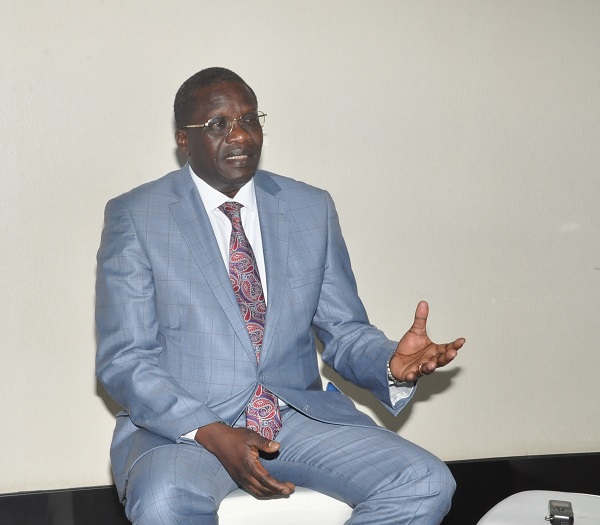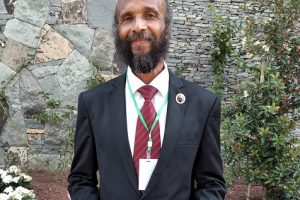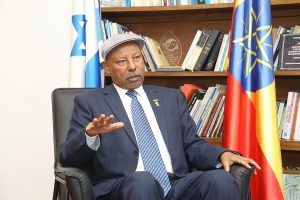
On the turning of this month Ethiopians celebrated the 128th Anniversary of the Victory at Adwa, which Ethiopians scored against the invading Italian forces. Added to the heroism of the people is the diplomatic approach of the Emperor Menelik II. One of the countries that stood by the side of Ethiopia was Russia.
Russia’s interest to work with Ethiopia in shared security matters dates back to the 16th century during which there was an interest from both sides to join hands and fight against common enemies. The alliance between the two countries became more practical since the Battle of Adwa.
After the successful collaboration at the battle of Adwa, Ethiopia and Russia have also continued their ties in many fronts. Russia has shown solidarity with Ethiopia when the latter was occupied by foreign forces since the second world war, during the cold war …etc.
Recently too, the government of Russia has shown due support to protect Ethiopia from the possible unjust decisions that were planned to be imposed by the UN Security Council in connection with the two years of war in the north of Ethiopia.
This is only one of the diverse sectors of collaboration between the two countries. Now Ethiopia and Russia are on a more suitable platform for collaboration as Ethiopia has joined the BRICS Plus bloc, in which Russia is at the fore front of its formation. Ethiopia’s membership in the BRICS + is believed to shore up the bilateral relations between the two countries as well as set momentum for changing the existing world order which is dominated by few countries of the west, as well as to avail many economic benefit to developing countries.
Shocking, Russia has faced one of the worst hits of terrorism in its recent history. Armed members of terrorist groups have launched barbaric attack inside a city hall killing … people. Countries across the world including Ethiopia have denounced the attack and shown concern and solidarity with Russia and the global community against terrorism.
As one of the long time victims of terrorism, Ethiopia also reaffirmed its commitment to fight against terrorism, beef up global peace and security.
Ethiopian Press Agency has recently held an interview with Ethiopian Ambassador to Russia , Cham Ugala Uriat on the overall Ethiopia and Russia relations, Ethiopia’s membership in BRICS Plus as well as the need to work hand in hand against terrorism. Enjoy reading!
Could you provide us with your reflection on the recent terror attack in Moscow?
As you may know, the heinous terrorist attack that has killed more than 133 and wounded so many innocent Russian citizens was occurred at Crocus City Hall complex near Moscow. The Security Services of the Russian Federation done all necessary efforts possible and detained scores of suspects including four terrorists who have participated in the shooting directly at the incident.
How do you perceive the impact of this attack on global peace?
As we may all agree, any act of terrorism taken in any place in the world, should be perceived as an evil act against humanity. These kind of attacks are threats to security and peace of all nations around the world. The impact of the incident that has happened at Crocus City Hall is not only on the Russian Federation, but it will affect global peace in one way or the other.
In your opinion, what measures should be taken (globally) to enhance security cooperation? And, between Ethiopia and Russia in light of such incidents?
In my candid opinion, all nations around the globe should work collectively in order to enhance cooperation among themselves as terrorism attacks do know no borders between the countries. A terrorist attack in one country, in one way or other, will have impact on other countries across the borders and the fact that nobody is certainly immune from this evil act, it is imperative for the nations of the world to strength their cooperation and pull together their resources to enable fight this common enemy effectively. In light of the incident that occurred in Moscow, the Ministry of Foreign Affairs of the Federal Democratic Republic of Ethiopia and Ethiopian Embassy in Moscow, have already expressed their respective sympathies and condolences to the bereaved families, the Government and People of the Russian Federation. The two sisterly countries are working closely to strengthen their cooperation on many issues including security matters.
How do you envision the international community’s response to this act of terrorism, and what role can Ethiopia play in fostering a coordinated response?
Frankly speaking, even though there may be some hostilities and political differences among some countries around the world, I do sincerely believe that it would be inhuman to celebrate the loss of the precious lives of innocent people. In this regard, the international community including our country has responded enormously in condemning this heinous act against the citizens of the Russian Federation.
Looking ahead, what are your hopes and priorities for strengthening bilateral cooperation between Ethiopia and Russia in addressing security threats?
As I have tried to mention above, Ethiopia and Russian Federation have a long lasting and cordial diplomatic relations. The two sisterly countries have been working closely to strengthen their cooperation at bilateral and Multilateral levels. Both of them have already sort out the areas of cooperation and signed many agreements on different issues of common interest including security sector. The two countries have strong will and interest in addressing security threats at global level in general, and the Horn of Africa, in particular.
Recently Ethiopia became a member of BRICS, what is expected in the near future?
As we know all, the members of BRICS were only five. Primarily, there were four Russia, China, India, and Brazil. Later on, South Africa joined the group and increased the number of members to five. As of January this year, five countries including Ethiopia already joined the group. When we see BRICS in terms of population, it holds over 40 percent of the world. The two member countries are known for their huge population. Russia, Brazil and the newly joined members such as Ethiopia have huge population. In this regard, BRICS will be a big market for Ethiopia.
How can Ethiopia and Russia cooperate specially under the framework of BRICS?
BRICS has three pillars which are peace and security, economy and finance and culture and people to people relations. We had historic relations with Russia. Ethiopia is a country that has never been colonized and many years of diplomatic relations. Thus, the two countries have old aged bilateral relations in terms of politics and diplomacy. The two countries also have social relations in various aspects. As you know it, there is a Pushkin center in the capital. This way we have strong bilateral relations with Russia. When you see interreligious relations, there is a strong bond between Russia and Ethiopia orthodox churches. They also established a consultation platform. Last year, for instance, delegates of Russian religious fathers came and celebrated Timket at Gonder. This year also about 21 Russian Orthodox Church Choirs came and celebrated Meskal (the finding of true cross) through presenting religious’ songs.
If we take two countries relations in education sector, numerous students were able to pursue their higher education here when the country was part of the former Soviet Union. They are now serving the country having different positions with the knowledge acquired from the former Soviet Union. Even though it is equivalent with the previous days, there are over 100 Ethiopians who are studying civil and military education in today’s Russia.
Aside from that, we need to do more in our economic relations. We have now decided to begin tasks in the three core economic sectors such as Investment, tourism and trade. These three include the priority areas in BRICS. So, BRICS creates another opportunity to do these.
Another point that manifest the growth of cooperation is, during the Russia –Africa summit, our Prime Minister Dr. Abiy Ahmed visited Russia. He paid official visit just before the summit, met president Putin and talked about the bilateral relations. And they signed five new and additional agreements. It was successful visit.
In order to enhance minimal trade relations, Ethiopian airlines fly to Russia four times a week. As per the agreement, Ethiopian airlines have also commenced cargo service. It is expected to increase its volume. This cargo service conveys our products to Russia market and vice versa. So, joining BRICS for Ethiopia is not an easy feat.
As I tried to elaborate earlier, by being member of BRICS, Ethiopia would gain wide ranging market access for its products. On the other hand, BRICS member countries have better capacity in terms of technology and innovation. So, through BRICS we can have the opportunity to gain technology. In terms of expanding tourism, China, for instance, is a source of tourism. Russians prefer to go to Egypt and Tanzania from African countries. The effort to make Ethiopia a hub of tourist destination, it widens the opportunity to attract Russian tourists.
BRICS has its own Bank called New Development Bank that avails finance for development. So we have to search ways of being member of this bank.
One of the areas of agreement between the two countries is energy. Would you elaborate its progress please?
Energy is a big sector of agreement between the two countries. Russia is one of the countries that generate nuclear energy. In Africa, they have already started nuclear project in Egypt. The agreement we reach is make use of Nuclear energy for peaceful purposes. As per the agreement, the nuclear power plant would be established for development. There is a keen interest from the Russian side to start the job and we are also facilitating the process on our side.
Thank you very much for your time!
My pleasure!
BY YUSUF ENDRIS
THE ETHIOPIAN HERALD SATURDAY 30 MARCH 2024





